#part 6 of 16 then
Explore tagged Tumblr posts
Text
Since "Palestine Speaks: Narratives of Life Under Occupation" is suspiciously not available in the US in the form of an e-book, I purchased a physical copy and wanted to share it here for anyone else also unable to get access.
Note: The person being interviewed here is a Zionist. I believe the people who compiled the interviews for "Palestine Speaks" included the interview as a means of showing off the imbalance of power between the oppressor and the oppressed. I initially did not want to post this (it nauseated me reading it), but decided to in order to show how Zionists think and why arguing with them is pointless.
AMIAD COHEN
Executive of the Eli settlement, 32
Born in Kfar Etzion, West Bank
Interviewed in Eli, West Bank
We first meet Amiad Cohen in 2012 while on a United Nations-sponsored tour of freshwater springs in the West Bank. Much of the West Bank outside the valley of the Jordan River is arid, and the struggle for control over water resources is a major flashpoint in the tensions between Palestinians and Israeli settlers. At Ein Al-Arik, which is located halfway between the West Bank cities of Ramallah and Nablus, the springs have been developed into natural bathing pools and a park by the nearby Eli settlement.¹
As part of a group of journalists and NGO workers, we walk among olive trees on a sloping, rocky hillside while our guide tells us of the Palestinian villages cut off from the spring by its recent development by the settlement into a park. Soon an Israeli security truck pulls up, and Amiad and one of his students get out to see what's going on. Before long, Amiad and the head of a local Palestinian village are engaged in heated argument-the Palestinian man claims the lands where the springs reside belong to his family. After things calm down, we approach Amiad and explain our work.
Later we meet Amiad in his office in Eli, a settlement laid out over eight hilltops twenty minutes north of Ramallah. He has brown eyes, a three-day beard, and his hairline appears to be receding towards his yarmulke. His desk is strewn with papers, binders, large rings of keys. "Someone told me a messy desk means a messy mind," he says. "So what does an empty desk mean?" His office is modest, without much more than a computer and some security monitoring equipment. He's not there very often. His real office is his truck, which he drives from neighborhood to neighborhood in the settlement. Amiad takes us on a tour of Eli in his truck, showing us mountain views, soldier memorials, and Bnei David-a pre-army school that Eli is known for. He also invites us to his home, a trailer he shares with his wife and two young children.
The floor of his small living room is strewn with plastic toys, and one wall of the room is packed with books. When we check on Amiad at Eli two years later, he's been promoted from head of security to a position he describes as CEO of Eli. Essentially, he says, he oversees the day-to-day operations of Eli, from the water and sewage systems to the building of new community projects. Still, he says, he only spends an hour a day in his office.
"WE'RE ZIONISTS, WE'RE GOING TO ISRAEL"
I was born on a kibbutz in Kfar Etzion, south of Jerusalem in the West Bank, in 1982.² I have five siblings - two younger brothers and three older sisters. I'm the oldest boy. The kibbutz where I grew up was part of the only Jewish settlement that was demolished in the '48 war. The Jordanians and other Arabs conquered it in '48 and killed almost everyone. Then in 1967, a man who had been a child there and one of the few survivors of the '48 war came back and established a new settlement.³
My mother grew up in a very blue-collar family in Batya near Tel Aviv, and my father grew up in Be'er Sheva.4 All my family is originally from New York City and Long Island. My grandfather, my father's father, fought for the U.S. in World War II. He married my grandmother in 1950 and told her, "We're Zionists, we're going to Israel." First they moved to Batya. But my grandfather wanted to go into the army and build settlements, so that's what he did. I was born in Kfar Etzion, but when I was three and a half, my family moved to South Africa - to Johannesburg. We lived there in the apartheid days, and we had five helpers living in the house. I was a good student, a good kid. But I couldn't go out of the house often because of security problems. We could be kidnapped or killed. So I went to school on a bus with an armed guard, and then I'd head straight home after school. To visit friends in another neighborhood, we had to make an appointment two weeks ahead for an armed escort. It was crazy.
We returned to the settlements in 1989, when I was seven. This time we moved to Efrat. But we had a nice home, a big home with a pool. My father is very intelligent, and he got into the computer business sometime in the early nineties, right around the time the Internet became popular. I learned about computers early. As a thirteen-year-old, I wrote HTML and that was when it had just been invented. I also taught computers to adults. I taught Excel, PowerPoint, and Word when I was a teenager.
I left school a year before graduating from high school, in eleventh grade, because I was bored. I felt like I was wasting my best years and I thought, What am I doing now? I have a problem with not doing anything. I like to be busy. So I dropped out. I volunteered for a year, teaching and working with children. Then I came to Bnei David, the pre-army academy here in Eli, studied here for a year, and then I joined the army.
ELI IS STILL NOT LEGALLY RECOGNIZED BY ISRAEL
The settlement I came to for school, Eli, was established in 1986. Eli comprises eight separate hills. We're on top of a hill in the original part of the settlement that was established by twenty, thirty families. Plans were made to settle the area in the late sixties, after the '67 war, and settlers started coming here in '76, something like that. Originally, the Israeli government planned a city of 100,000 people, and the first residents came from Shilo, just south of here. Building Eli was all part of the dream of many of us settlers to bring as many Jews as possible to this part of the West Bank - a million Jews to the West Bank. In the 1980s, the government of Israel tried to encourage people to move to this region by paying for homes, roads, everything. And then in the mid-nineties the government stopped promoting settlement.¹⁰ So Eli didn't grow as fast as its planners had originally hoped.
Bnei David was established in 1989 by a rabbi who wanted to make a new kind of school that would be a pre-army yeshiva.¹¹ The goal was that students would study the Torah to build themselves into better soldiers, better civilians, better people.
Bnei David was the first school like that. And now it's a revolution in the Zionist community. There are twenty pre-army schools that are religious like the one here in Eli, and there are twenty secular pre-army academies. I teach here at Bnei David, and I teach in Tel Aviv in a secular one. And it started here in Eli. Most of the population of Eli today graduated from this yeshiva, and now we have high-ranking officers in the army who live here. Generals, major generals live here-ten, fifteen generals in a small town of almost 4,000 people, because of Bnei David.
But the problem we have in Eli is that the town is still not legally recognized yet by Israel. Or I should say, Eli was recognized by the state of Israel, but they didn't finish the process. They encouraged the settlement back in the eighties but haven't officially recognized the settlement following the agreements in the mid-nineties. The secretary of defense needs to sign an order to recognize us, but most of the secretaries of defense in the past twenty-five years have been too far left politically to acknowledge settlements like Eli.¹² That's one problem. The second problem - we live in a place that is in between two administrative areas. There are Areas A and B, which are supposed to be governed by the Palestinians, and Area C, which is for Israel and the settlers.¹³ We're exactly in between. That means that land ownership and enforcement of the law in this area are very unsettled. That's an understatement. For the Arabs around here, there's no bookkeeping about who owns what land, and so a lot of Arabs make claims on land as personal property without having any written records. No one knows the facts. We can't prove anything about land ownership, and they can't prove anything, so it's a problem.¹⁴
WHEN IT'S WAR, IT'S WAR. WHEN YOU'RE MORAL, YOU'RE MORAL
After graduating from Bnei David, I joined the army. In 2001, when I started, the mandatory conscription was for three years.¹⁵ I was in the Golani Brigade.¹⁶ And in Golani they have special units, and I wasin a special unit whose expertise is demolition. I worked with explosives - RDX-10, C-4.¹⁷ Our job was to demolish Palestinian bunkers and weapons caches throughout the Gaza Strip, in the West Bank, in Lebanon. Our unit could do crazy stuff with explosives. We could go into a building and blow up only one room without hurting the building, for instance. There were situations where we might find Palestinian explosives in a room and need to detonate them, but we didn't want to destroy the whole building. We'd have to make a hole in the wall and set up our explosives a certain way so the explosion was directed out of the building. It was very difficult. Sometimes it didn't go as planned, and the whole building would crash down. We tried to do our best so that nobody was hurt or killed. The most difficult period of my service was fighting in the Gaza Strip in 2004 through 2005.¹⁸ It was very extreme, very frightening there.
Plenty of friends were injured, plenty of my fellow soldiers. In Gaza we were fighting mostly Hamas. But we couldn't always distinguish who was Hamas and who was not, and my soldiers and I had plenty of talks about how to be moral about war. Questions that you don't hear plenty of people ask. When it's war, it's war. When you're moral, you're moral. The two don't always go together. But we tried to ask the questions, How do you do it? How do you act morally in this situation? If a child gets caught up in our operations, what would we do? And it was dangerous, too. I was shot at by Palestinians when I was a soldier. I was in a civilian car hitchhiking to my base, and two Palestinians ambushed us and shot at our car. I stopped the driver, and I ran after the two gunmen. We ended up capturing them, and they were sent to prison.
When you join with a military force, you divide the world into the good guys and the bad guys. I've been there. That's how you educate soldiers. A soldier needs to know that he's good and the enemy's bad. If he thinks that he's maybe a little bad and the enemy's maybe a little good, then he's not a good soldier. That's the army world. But now I live in the civil world, a much more complicated world.
I'M MARRIED TO MY WIFE AND MY M-16
After the war, I came back to Eli and started teaching at Bnei David. Then I met my wife through a friend in 2007, and I knew right away I wanted to marry her. When my students ask me how you choose your wife, I tell them, "First of all, you need to have chemistry. And then you have to have the same ideas about what you want in life. Then you need to earn her - not win her - you need to change to be better to earn her."
When we met, my wife worked with handicapped adults. And when I saw how she treated them, I knew she was a good person, that she had a big heart. And I wanted a big-hearted wife. I told her, "You'll be my wife, now you just need to decide that I'll be your husband." And it happened. We were engaged half a year after we met and married in eight months. Our first child was born in 2009 and the second in 2011. Around the time my wife was pregnant with our second child I also started working as head of security in Eli.
I drive my truck a lot on the job. I have a knife, a Motorola, and my M-16. I'm married to my wife and my M-16. It goes everywhere I go.
As head of security of Eli, I haven't had to shoot my rifle. And I don't want to. I know when to hide it and when to show it. The people of Eli all own a lot of weapons, mostly pistols. It's common. It's for their own security. Here people don't just feel threatened, they are threatened. But many settlers don't know how to use their guns, which is dangerous.
There are areas where it's much more dangerous, and areas where there's less danger. Now, it's quiet. From 2001 till 2005, shootings in the of the West Bank were common.¹⁹ But in the past three roads in this part years that I've had my job, there have been three shootings in the roads here. Still, we're surrounded by neighboring Palestinian villages, and each one has about 5,000 people. So we're surrounded by 12,000 or 15,000 Palestinians, and there's less than 4,000 of us here in Eli.
When I have security situations, I'm very stressed. But I run and I swim. That's how I calm down. We live a regular life here in Eli, but we always carry something inside-fear. Because every night when I get a telephone call from my subordinates saying the radar system we use sees something weird, I jump. Because I can't stand the sight of a murdered family. I'm afraid that my wife and kids will get hit by stones. It happens every day. And the Molotov cocktails thrown at cars - that happens once a week, every two weeks.
In the summer of 2010, I got a call that there was a fire just east of Eli. So I got my deputy and a couple of other guys, we called the army for security, and we went to put out the fire. Palestinians from the village just east of here, Karyut, they had burned out one of my security cameras on the edge of Eli's jurisdiction.²⁰ I knew it was set on purpose, because it was started with a burning tire. Setting fire to tires and putting them by something else is a good way to burn something down, and something I've seen villagers do it before. The wind was from west to east, the fire spread to an olive grove, and olive trees were burning. I had the phone number of the head of security of Karyut, and I speak a bit of Arabic. So I called him, and I told him there was a fire burning down Palestinian olive trees.
I decided to extinguish the fire in the olive grove myself. I don't like olive trees burning. We believe that the trees have a place in the world, that they're important. So the head of security in Karyut came, and he brought cameramen.
While we extinguished the fire in the olive grove, they photographed us. I came with fire-extinguishing equipment, and he brought photographers. I took pictures of them taking pictures of me. It was crazy. He told me, "I'm taking pictures to show how you're burning down our trees!" I put out the fire anyway, despite the Palestinians' accusations against me, because it was the right thing to do. What I feel isn't anger. It's frustration. Yes, we all know there is a conflict. I'm not trying to hide the conflict. But there is a way to solve the conflict - that's through negotiation. You want to come and negotiate, come. You don't, pay the price.
TO ME, "SETTLER" IS A GOOD WORD
We stay here despite the threat because of ideology. Zionist slash Jewish slash God-different sides of the same thing. They kicked us out of Europe - thank you very much for kicking us out of Europe. We don't care who wants us and who doesn't. We decided, We're here and you don't play around with people like us. We're here, and we're able to fight to stay here. Last night I had a conflict with a Palestinian. And he told me, "Now you're strong, so you can kill us. But when we are strong, we'll kill you." I said, "Yeah, okay, so when you think you're strong enough, call me." That's an answer for people who only understand power.
I feel powerful now. In the larger world, "settler" is not a good word when talking about the West Bank. But to me, the word "settler" is a very good word. I see a settler as a person who is trying to live with the land, to combine people and the land together in a positive way. We're tryingto build, to grow here in Eli. We want to bring as many people as we can here. Plenty of the wives here work only part-time jobs, because the main goal is building a new generation. Now my wife is a social worker, working with kids, broken families, divorced parents, parents in prison. But it's only a part-time job. We want to grow our family.
I don't hate Arabs. I don't want to kill them, I don't want them dead. I'm not against them. The Jewish nation's place is here. I don't want a conflict with you. You can live here. You're invited. Meanwhile, there is a Palestinian state - in Jordan. We need to put everything in place. I don't want Egypt, I don't want Syria, I don't want to conquer Europe. We want our place. Mine. This small border, this is mine. Give me my place. I don't want your place.
I'M VERY OPTIMISTIC ABOUT LIFE
I hope that my kids will be much better than I am. I don't believe that I'm so good, but I pray that my kids will be much better. Because the world is going forward. It's not going backwards. It's getting better and better every day. And I'm very optimistic about the future.
Today, I know how to control myself and my anger. I've worked on it the last few years by studying the Torah. Now I think of how to choose every minute of my life. I have responsibility for my feelings. I choose my feelings, I know how to control them. Because everything you feel, everything you do, you choose.
There is a national conflict, and I believe that is a moral conflict. I need to ask myself in what ways we are we acting immorally towards the Palestinians and try to fix that. And I know what apartheid is in South Africa - I lived there. The basics are very different. The English, French, and Dutch came to South Africa as conquerors, as imperialists, and conquered Africa - that's very different from what's happening here. To say that we are treating Palestinians like the South Africans - it's wrong, it's not happening here.
I don't believe that, as a whole, Arabs in Israel want to push all Jews into the sea. It's much more complicated than that. Whoever holds Islamic ideology definitely wants to kill all the Jews. They say it, loudly. You just have to listen. Read their books, their newspapers. Whoever embraces the Palestinian national identity, they want to kill us in a war. They say it. When they draw the map, they don't draw the '67 borders, they claim all of Israel.²¹ They want everything.
I do not think that everything Israel does is moral. We are not as good as we want to be. My explanation for our problems is that we don't know yet who we are and what our goals are. We have problems with human rights with the Palestinians. And the extreme left wing wants to keep these problems, actually, so they can show we are not moral people, and the Jews are not what they claim to be. So I try to fight that perception.
To build our identity as Jews in Israel, who we are, we have to start by asking questions. And we have to have problems to force us to ask questions. So, thank God we have the Palestinians. Thank God we have that problem, so we can ask ourselves who we are. It's more than useful. It's an integral part of who we are.
What is immoral about settlement buildings? The world expects the Jews to be more moral than others. When I educate, I explain that criticism comes out of a belief. When you criticize something you believe they can change. If you don't care about someone, you don't criticize them. The world is looking up to the Jewish nation and the Jewish community and the Jewish country because they believe there is something different here.
---
Footnotes
¹ Today, Eli is a cooperatively-run settlement of nearly 3,500 people about thirty miles north of Jerusalem.
² Kfar Etzion is a settlement of under 1,000 people located four miles south of Jerusalem. A kibbutz (Israeli collective farming community) was built on the current location in 1927.
³ The kibbutz at Kfar Etzion was completely destroyed after a two-day battle during the Arab-Israeli War in 1948. The destruction of the village by Arab forces (in retaliation for the destruction of an Arab village), is memorialized throughout Israel. After the 1967 Six-Day War, a newly established Kfar Etzion was one of the first planned Israeli settlements in the occupied West Bank. The new community was led by Hanan Porat (1943-2011), a prominent settlement activist who, as a child, was one of four survivors of the original Kfar Etzion's destruction.
⁴ Mazkeret Batya is a city of 10,000 located sixteen miles south of Tel Aviv. Be'er Sheva is a city of over 200,000 people located sixty miles southwest of Jerusalem.
⁵ Zionism is the movement to create a Jewish homeland that led to the formation of Israel in 1948.
⁶ During the late eighties, opposition to South Africa's apartheid policies intensified and resulted in widespread violence and a national state of emergency.
⁷ Efrat is a settlement with 10,000 residents that was established in 1983. It is located three miles east of Kfar Etzion.
⁸ Shilo is a settlement a few miles east of Eli. Shilo was established in 1978 and has a population of nearly 2,500. It was one of the first settlements constructed by the Gush Eminum movement, which sought to claim all of Judea and Samaria (the West Bank) for Israel.
⁹ The number of Israeli settlers in the West Bank quadrupled between 1980 and 1983, from 8,000 to approximately 32,000. Expanded construction of settlements in the West Bank and Gaza was promoted by the government of Prime Minister Menachem Begin following the Camp David Accords and the peace agreements with Egypt, Israel's most powerful neighbor.
¹⁰ The first Oslo Accord was signed in 1993 and slowed the growth of settlements in the West Bank for a couple of years after implementation in 1995 (though settlement construction expanded in 1997).
¹¹ A yeshiva is a Jewish religious school dedicated to the study of the Talmud and Torah.
¹² The Israeli government officially recognizes 125 settlements in the West Bank, and over 100 more have been established without formal recognition (and contravening Israeli law), but with support for infrastructure and security.
¹³ From the glossary -
Areas A, B, and C: Administrative areas within the West Bank that were established following the 1993 Oslo Accords. In Area A, the Palestinian Authority maintains full civil and security control. This area makes up only 18 percent of the West Bank but includes dense urban areas the cities of Bethlehem, Hebron (approximately 80 percent of the city), Jenin, Jericho, Nablus, Qalqilya, Ramallah, and Tulkarm. Israeli citizens are forbidden to enter territory designated Area A; however, the Israeli Defense Forces conduct raids and arrests in these territories. In practice, few Israeli citizens have trouble when entering Area A territories. Area B represents 22 percent of West Bank territory and is mapped out around approximately 440 Palestinian villages. Here, the Palestinian Authority maintains civil control while Israel maintains security control. Area B territories are not supposed to have any Israeli settlements, though Israeli citizens are permitted to travel throughout Area B under certain circumstances, such as to visit religious sites. In Area C, Israel maintains full civil and security authority. Area C represents 60 percent of West Bank land area and is the home to as many as 500,000 Israeli settlers. Palestinians are partially restricted from entering Area C. However, approximately 200,000-300,000 Palestinians, including Bedouins and some farmers, live in Area C, though their access to resources such as water and electricity is significantly restricted.
¹⁴ Parts of the land Eli Settlement is built on are categorized as Palestinian private property according to a 2013 survey conducted by the Israeli Civil Administration.
¹⁵ Israeli citizens (with some notable exceptions) are required to serve in the military, usually starting at age eighteen.
¹⁶ The Golani Brigade (also called the 1st Brigade) was responsible for major combat opera- tions throughout the West Bank and Gaza during the Second Intifada.
¹⁷ 17 RDX-10 and C-4 are both explosive compounds used commonly in warfare.
¹⁸ Fighting throughout the Gaza Strip during the Second Intifada lasted until the unilateral withdrawal of Israeli security forces and settlements between August and September of 2005.
¹⁹ This was the period of the Second Intifada.
²⁰ Karyut is a village of less than 5,000 people located a mile east of Eli.
²¹ The '67 borders are the borders demarcated by the Armistice Agreement of 1949, otherwise known as the Green Line.
---
They couldn't have found a more unserious individual if they had tried. He's afraid that his family will have stones thrown at them and is willing to murder anyone with a gun he has access to if they do so, while the Palestinians (who have access to, at most, molotovs) are worried that their kids will be imprisoned or murdered.
He also makes a certain admission: "I have learned to control myself and my anger". Which implies that there was a period in his life, possibly while serving in the IOF, that he did not. And it brings to mind of all the angry young men sent to Vietnam who took their anger out on innocent civilians.
#palestine speaks#zionism#book exerpt#jfc there's so many contradictions and stuff to unpack here#why did he think he was going to be KIDNAPPED in south africa?#“boohoo my genocidal state won't recognize my town as part of it”#“i think the palestinians are savages but i'm so good to them despite it boohoo”#shit i accidentally skipped a chapter so this is the sixth person interviewed#part 6 of 16 then
0 notes
Text
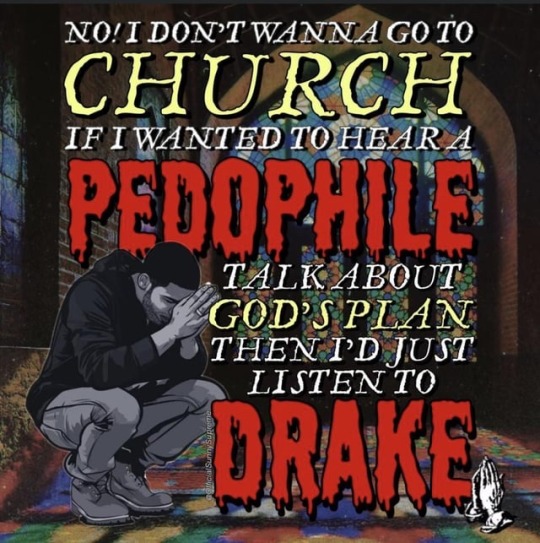
#drake#kendrick lamar#6:16 in la#euphoria#family matters#meet the grahams#not like us#taylor made freestyle#the heart part 6#push ups#music#rap#hip hop#like that#1k
3K notes
·
View notes
Text
Not to post videos from tiktok, but I'm gonna.
On every social platform, I'm seeing a lot of discourse about the Drake & Kendrick situation. Ofc fuckkk Drake, but the unconditional Kendrick love didn't sit right with me even though he is the one I listen to. And this person (tiktok tag: xiandivyne) put it really eloquently and I think you should see it because there is a lack of nuanced takes on this topic :
#kendrick lamar#drake diss#rap#j cole#pushups#taylor made#euphoria#6:16 in la#family matters#meet the grahams#not like us#the heart part 6
145 notes
·
View notes
Text

no one will understand me for this sorry 💔💔💔
#finds men from a series with 6 fans and says they should kiss#they SHOULD kiss#they're cutie patooties (horrible people with no redeeming qualities)#michael roa valdamjong#roa tsukihime#nrvnqsr chaos#nero chaos#chaos tsukihime#tsukihime#melty blood#yessir i love u melty blood#i want them to DIE (get married)#what did roa mean when his freak ass said “splendid my 17th marriage”??? i choose to think that means they're 16 times divorced#fanart#tsukihime fanart#melty blood fanart#lets go type moon fans#i stand with disgraced zoology professor nrvnqsr chaos and his stupid failure husband#both of them are men who used to be part of a church and are now running around shirtless#spent my 2 hours of free time thinking about them im afraid
46 notes
·
View notes
Text
Reblog if you want Metro Boomin to change his producer tag to "Metro shut your hoe ass up and make some drums"
#metro#metro boomin#metro boomin make it boom#kendrick drake beef#kendrick vs drake#kendrick lamar#kendrick diss#drake diss#drake#drake slayer#bbl drizzy#we dont trust you#push ups#like that#aubrey graham#k dot#not like us#meet the grahams#family matters#6:16 in la#the heart part 6
36 notes
·
View notes
Text
Kendrick-Drake Beef Playlist
(Disclaimer: All accusations between the two artists are alleged. As of 5/9/24, there has been no formal investigation regarding allegations of sexual trafficking, abuse to minors, illegitimate children, or domestic violence. Viewer discretion is advised.) Out of the loop? Here's the track list of disses in order:
1) Control (Big Sean ft. Kendrick Lamar & Jay Electronica)
Infamous enough that former President Barack Obama was asked who would win a rap battle between Kendrick and Drake. He chose Kendrick Lamar.
Bout who's the best MC? Kendrick, Jigga and Nas I'm usually homeboys with the same n---a I'm rhymin' wit But this is hip hop and them n---as should know what time it is And that goes for Jermaine Cole, Big KRIT, Wale Pusha T, Meek Millz, A$AP Rocky, Drake
2) First Person Shooter (Drake ft. J Cole)
First response from Drake after Control dropped, this time featuring J Cole who completed the ultimate trifecta of today's popular rap artists.
Love when they argue the hardest MC Is it K Dot, is it Aubrey or me? We the big three like we started the league But right now, I feel like Muhammad Ali
3) Like That (Future, Metro Boomin, Kendrick Lamar)
Second response after FPS. Kendrick refuses to share the crown with Drake and J Cole and challenges them for the top spot.
Think I won't drop the location? I still got PTSD Motherfuck the big three, n---a, it's just big me N---a, bum, what? I'm really like that And your best work is a light pack N---a, Prince outlive Mike Jack N---a, bum, 'fore all your dogs gettin' buried That's a K with all these nines, he gon' see Pet Sematary
4) 7 Minute Drill (J Cole)
J Cole decides to beef with Kendrick after being called out in Like That. He quickly disowned 7 Minute Drill and days later apologized to Kendrick Lamar during a live show. Allegedly, after hearing that the beef between Kendrick and Drake was serious, J Cole bowed out of the beef because he thought it was a friendly competition.
He still doin' shows But fell off like the Simpsons Your first shit was classic Your last shit was tragic If he wasn't dissin' Then we wouldn't be discussin' him
5) Push Ups (Drake)
While J Cole ducks for cover, Drake moves forward with the beef, though it's also a collective diss to Rick Ross, and Metro Boomin. This is also where he drops Kendrick's fiancee's name, Whitney and makes fun of his height. You won't ever take no chain off of us How the fuck you big steppin' with a size-seven men's on? This the bark with the bite, n---a, what's up? I know my picture on the wall when y'all cook up Extortion baby, whole career, you been shook up 'Cause Top told you, "Drop and give me fifty," like some push-ups, huh
6) Taylor Made Freestyle (Drake ft. Tupac AI and Snoop Dogg AI)
Second shot at Kendrick, this was released on IG. Drake uses AI for this track, using Snoop Dogg and 2Pac to taunt Kendrick. 2Pac's estate demanded that the track be taken down as it was an unauthorized use of 2Pac's voice. Drake eventually took the track down, but the damage was already done.
Dot, I know you're in that NY apartment, you strugglin' right now, I know it In the notepad doing lyrical gymnastics, my boy You better have a motherfuckin' quintuple entendre on that shit Some shit I don't even understand, like That shit better be crazy, we waitin' on you
7) Euphoria (Kendrick Lamar)
Kendrick officially warns Drake that he has dirt on him. Euphoria is also a hit show about troubled girls, which Drake is a producer of. This is also the infamous track where KDot demands Drake lose his N-word privileges.
I make music that electrify 'em, you make music that pacify 'em I can double down on that line, but spare you this time, that's random acts of kindness Know you a master manipulator and habitual liar too But don't tell no lie about me and I won't tell truths 'bout you
8) 6:16 in LA (Kendrick Lamar)
While waiting for Drake's response, Kendrick shocks the hip hop world with a second shot a couple days after Euphoria, exactly on 6:16am (PST). This track is meant to spook Drake. Kendrick gloats of how he got his hands on a mole in Drake's entourage and they're feeding him scandalous information about Drake.
But let me tell you some game 'cause I can see you, my lil' homie You playin' dirty with propaganda, it blow up on ya You're playin' nerdy with Zack Bia and Twitter bots But your reality can't hide behind wifi Your lil' memes is losin' steam, they figured you out The forced opinions is not convincin', y'all need a new route It's time that you look around on who's around you Before you figure that you're not alone, ask what Mike would do
9) Family Matters (Drake)
A few hours after 6:16, Drake finally responds to the beef. He ups the ante by taking shots at Kendrick's family and drops that Kendrick beats his wife. Drake also threatens other artists who may be siding against him. This is also the most he's said the N-word in his song, taunting Kendrick for revoking his N-word privileges in Euphoria.
When you put your hands on your girl, is it self-defense 'cause she bigger than you? Your back is up against the curb, you diggin' for dirt, should be diggin' for proof Why did you move to New York? Is it 'cause you livin' that bachelor life? Proposed in 2015, but don't wanna make her your actual wife I'm guessin' this wedding ain't happenin', right?
EDIT: This post on reddit believes that Family Matters was the whole reason for the Euphoria drop. This is pure speculation, however, so decide for yourself the validity of these receipts!
10) Meet the Grahams (Kendrick Lamar)
Not even 45 MINUTES after Drake drops Family Matters, Kendrick responds, robbing Drake of his temporary triumph. He straight up lays waste to Drake's entire family, offering to be Adonis' mentor because Drake's a deadbeat dad, calling out Drake's parents for raising him terribly, and revealing that Drake has another illegitimate child, this time a daughter he's been hiding for eleven years. He also warns the female listeners that if they like Drake, they're exposing themselves to a predator.
Dear Aubrey I know you probably thinkin' I wanted to crash your party But truthfully, I don't have a hatin' bone in my body This supposed to be a good exhibition within the game But you fucked up the moment you called out my family's name Why you had to stoop so low to discredit some decent people? Guess integrity is lost when the metaphors doesn't reach you
11) Not Like Us (Kendrick)
24 hours after Meet the Grahams, Kendrick drops a new diss track, this time actively calling for Drake's life, saying he has fake street cred, called the people in his entourage pedophiles, and releasing the track just before everybody hits the club on a Saturday night just to rub salt in the wound. He calls out Drake on behalf of 2Pac and promises he has at least five more diss tracks waiting, knowing that Drake hasn't had the chance to respond yet. He also mentions Family Matters, which meant he wrote his responding diss in less than 24 hours.
Let me break it down for you, this the real n---a challenge You called Future when you didn't see the club Lil Baby helped you get your lingo up 21 gave you false street cred Thug made you feel like you a slime in your head Quavo said you can be from Northside 2 Chainz say you good, but he lied You run to Atlanta when you need a few dollars No, you not a colleague, you a fuckin' colonizer
12) The Heart Part 6 (Drake)
Also 24 hours after Kendrick's last diss track, Drake finally drops a response. He addresses some of the allegations, including purposefully feeding info from the mole to Kendrick about a daughter that doesn't exist. He takes a few more shots at Kendrick's relationships, implying that his partner Whitney hasn't denied the accusations of domestic violence. He also clowns on Kendrick's sexual abuse as a child and blames that on his witch hunt to prove Drake was a pedophile. He ends the diss saying that he was tired of the whole beef and he didn't want to fight with an alleged woman beater. As of 5/9/24, THP6 has more dislikes than likes on Youtube.
My mom came over today, and I was like, "Mother, I— Mother, I—, mother—," ahh, wait a second Wait a second, that's that one record where you say you got molested Aw, fuck me, I just made the whole connection This about to get so depressing This is trauma for your own confessions
_____
This is the BARE BONES summary of the long, bitter history between Kendrick Lamar and Drake. This doesn't even cover it all. This is just about the disses. I recommend looking up the history between them for more context in other places.
It's 5/9/24 and 3:00pm (PST) as of this post. Updates will be posted accordingly.
#kendrick lamar#drizzy drake#kdot#hip hop#kendrick-drake beef#euphoria#family matters#6:16 to la#not like us#aubrey graham#push ups#taylor made freestyle#meet the grahams#drake diss#kendrick diss#the heart part 6
31 notes
·
View notes
Text
I spedrun 37's event when there was only 2 hours left lmfao... the beefing between her and 210 was pretty hilarious to see their back and forth is gold even though I was pretty damn lost at all the mathematical and philosophical terms being thrown around...


also him holding that magazine lmao
#reverse 1999#playing rev 1999#why are you beefing with a 16 year old over a game of hopscotch mr 210.#and then there's 6 who did NOT want to join the game the moment 37 saw him and like fucked off and only came back at the very end.#my severely introverted king#and then finding out sophia wasn't an aperion native was interesting. also all her thoughts on 37 from their childhood to current hmm#never could quite understand her thinks she can never live up to her and their differing roles has a tinge of an inferiority complex in her#part but despite it all she does indulge and love her all the same... damn no wonder people keep making vernetto parallels of sophia and 37
30 notes
·
View notes
Text
drake saw everyone saying ‘nah drake’ and calling him weird as fuck for the heart part 6 on twitter and sent another check out for more bots, they’re EVERYWHERE NOW
#YOURE PLAYING NERDY WITH ZACK BIA AND TWITTER BOTS LOSER#kendrick lamar#drake#the heart part 6#6:16 in la#rap
23 notes
·
View notes
Text
Season 5 Opener: Out of Context
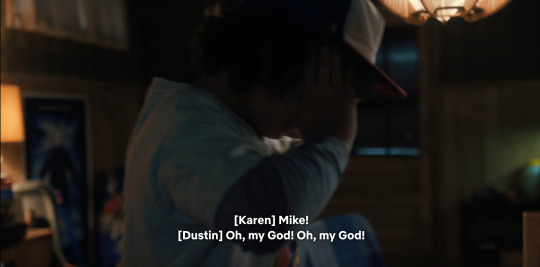

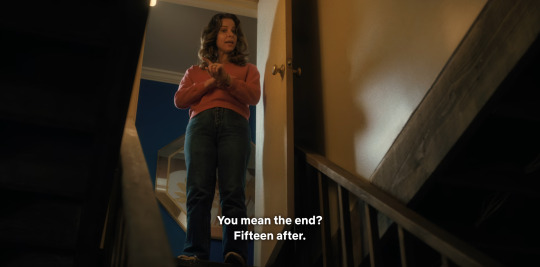
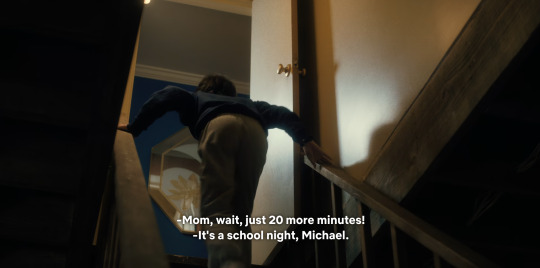




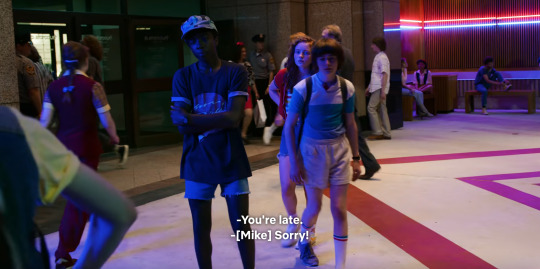
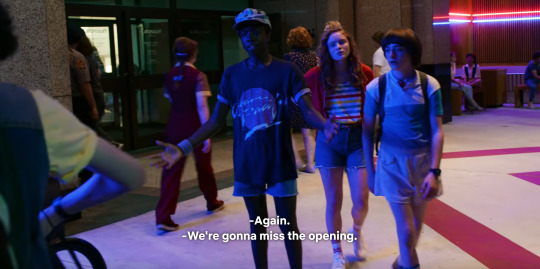
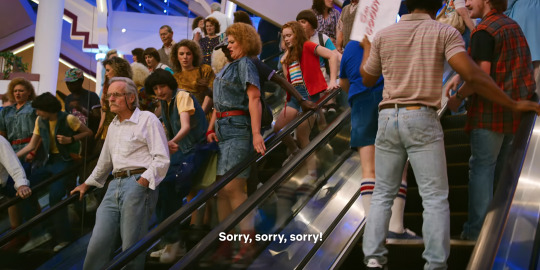
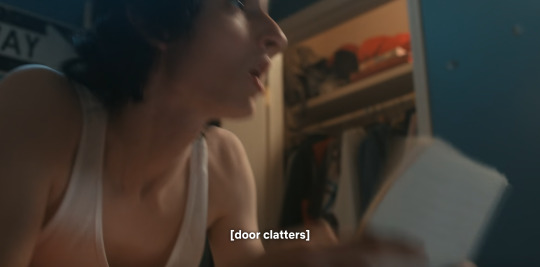


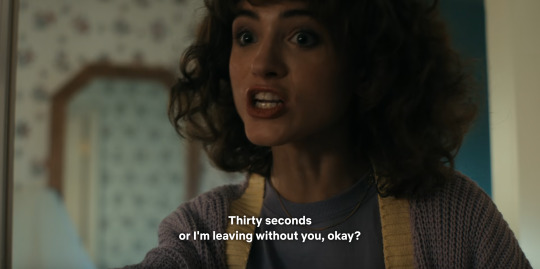
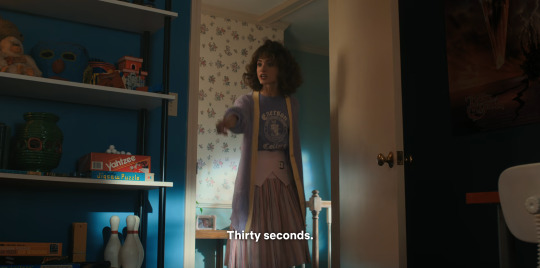
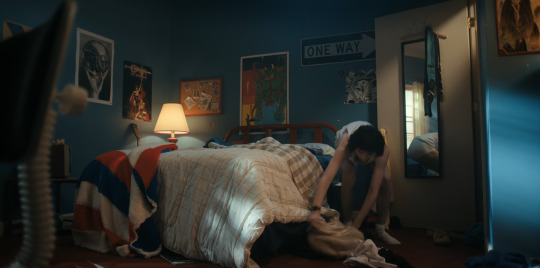

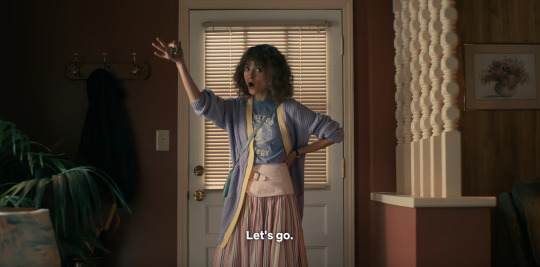
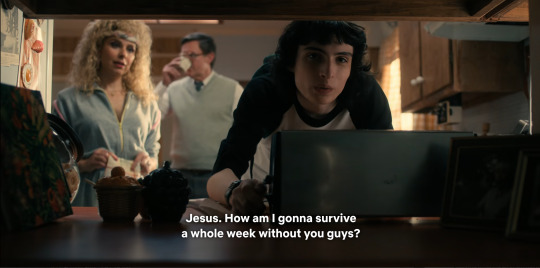
Bonus:
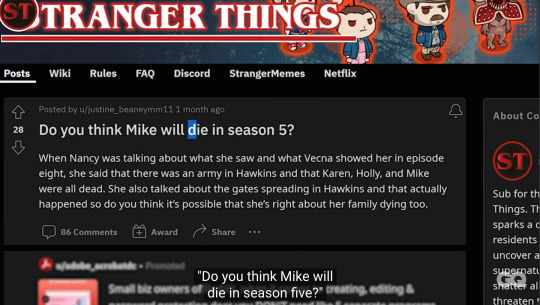
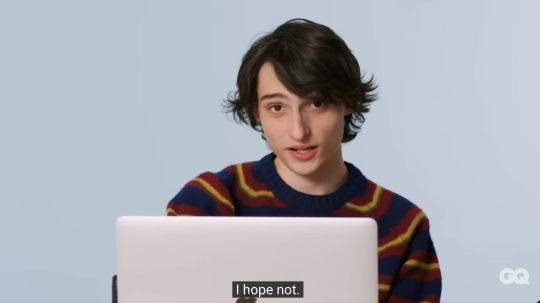

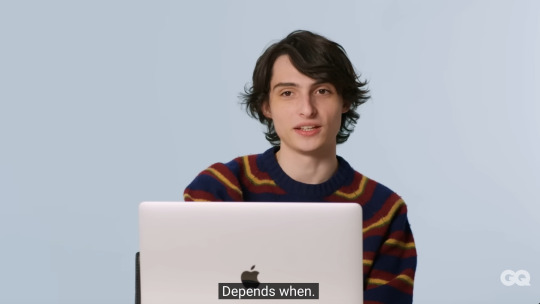
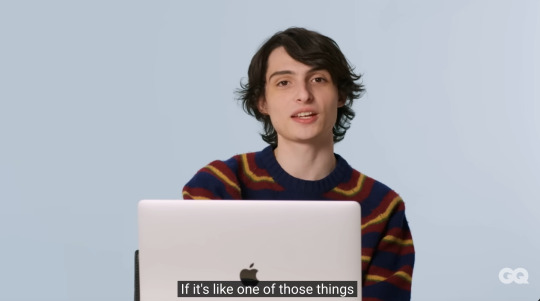

#stranger things#mike wheeler#*mike running late*#*mike and stairs*#labyrinth teas#no but the theory that they already filmed the opening of s5 during s4 filming is looking pretty interesting rn...#bc this interview was during s4 press aka after they filmed for s4...#finn... try not to subtly spoil the show challenge? failed part 16#'you mean the end?'#'what do you mean you don't know yet?'#'hey no running--'#'you're late. again'#'we're gonna miss the opening'#'what are you doing? it's ten after!'#'you have thirty seconds or i'm leaving without you. THIRTY SECONDS!'#'jesus. how am i gonna survive a whole week without you guys'#*s5 opening at the end of said week...*#another detail i noticed is that these moments all happen later and later in the opening of each season#s1 it's around 3 minutes#s2 it's around 6 minutes#season 3 it's around 8 minutes#and season 4 it's around 13 minutes#yall. i think mike is gonna be late 15 minutes into s5...#aka#15 after...#no i dont think mike will die#i just think he might go on a side quest 'labyrinth/paladin absolution after breaking an oath' style#hence mike by himself isolated from the others in that one funkopop shot-listing ross posted (they only completed ep 1-2 for that...)#crack theory i guess
49 notes
·
View notes
Text

#drake#kendrick lamar#6:16 in la#euphoria#family matters#meet the grahams#not like us#taylor made freestyle#the heart part 6#push ups#music#rap#hip hop#like that#1k#… shit is wild 😮💨🤣🤣🤣#Youtube#Not like us#aubrey graham#drake diss#kendrick#kdot#kendrick diss#megan thee stallion#Kendrick lamar#dreamville#metro boomin#rick ross#diss tracks#6:16 in LA
15 notes
·
View notes
Text
sometimes its so crazy to realize that there's actually a lot of things i like. that i thought i didn't like because i was a depressed teenager. i love being outside! i love swimming! i love talking to people! even strangers sometimes! i love getting dressed in fun outfits and doing makeup! i love reading and going to art museums! i just thought i was doomed forever to a life of complete and total apathy and void! and now look at me! still a little shaky but i'm doing it!!!!!
#reaching back thru the spacetime continuum to grab 15 year old bunny and shake him by the shoulders a little bit and go hey!!!#it's not ALWAYS gonna be like this!!!#one day you're gonna be 23 and it'll still be like this sometimes!!!#sometimes you'll still wake up and feel it but it won't be all the time!!!!!!#you're gonna have friends who know you and see you even the ugly parts of you#and they're still gonna love you anyways!!!!! it's not over yet i promise!!!!!!#and then one day when i'm 34 i'm sure i'll think the same thing about me now#but until then! it's me and myself when i was 22 and 21 and 20 and 19 and 18 and 17 and 16 and 15#and 14 and 13 and 12 and 11 and 10 and 9 and 8 and 7 and 6 and 5 and 4 and 3 and 2 and 1
13 notes
·
View notes
Text

#the heart part 6#drake#kendrick lamar#euphoria#6:16 in la#meet the grahams#not like us#music#rap#hip hop#family matters#push ups#taylor made freestyle#dan schneider#nickelodeon#nick#quiet on set#like that
655 notes
·
View notes
Text

THE WORKING VACATION MOCKTAIL!!!!!!!!!!! BECAUSE WHO SAYS YOU SHOULDN’T TAKE SOME TIME FOR YOURSELF?
#my edit#my recipe#saw x#saw franchise#Okay some tips:#I took espresso grounds and put them in a French press for my coffee but I’m sure any black coffee will be fine#But I did 4 tablespoons of the espresso grounds for the 16 ounces of water and let that brew for about 6/7 minutes before I pressed it down#My orange simple syrup is also one I made but I’m sure you can buy one but simple syrup is easy to make as well#And now the important part - I say if you’re spiking it put an orange liquor#But now I’m done AGAIN all the Saw movies have a mocktail recipe
11 notes
·
View notes
Text
I think the funny thing about my being a youth leader is that I basically just Hang Out with a bunch of middle schoolers. like I just pal around with them and play games and then sit down and ramble at the youth pastor when it's time to discuss the Biblical topic of the night and somehow this has charmed like half a dozen of them into considering me A Cool Person despite the fact that I'm actually Introverted And Awkward at all times
#actually part of my goal in youth leadership is to show that like... you don't HAVE to be all together and chill#like when I was in youth group (briefly bc I was only in a location where it was an option for like 6 months tbh)#all the youth leaders — especially the female ones — seemed so Cool and Calm and Put Together ALL THE TIME#and it made me (frumpy and 16 and trying so hard to make friends) feel REALLY inadequate and insecure#and like I still have to work through the insecurity that caused in me!! bc the girls a few years older than me#who were youth leaders all seemed so CALM and RESPECTABLE and MATURE#and I STILL don't act like that! and I'm certainly not cool and calm and put together skskfndksnf#so I just want to like... not hide my awkwardness too much with these kids. not try to project Coolness or Looking Put Together#because I want them to see that like... they're fine just how they are? I want to be an example of what it looks like#when you're NOT the naturally calm and organized kind of person! when you're Awkward and Loud and Goofy and Hyper sometimes#because if you're following God then that stuff really doesn't matter. He made us a certain way and that's fine#idk. I think about this every so often again though akdkdkfnsk#Lu rambles
33 notes
·
View notes
Text










s t a r t r e k t h e n e x t g e n e r a t i o n created by gene roddenberry [birthright part i, s6ep16]
'What has happened?' - data
'A plasma shock overloaded your positronic net. You were down a good thirty seconds.' - laforge
'That cannot be possible. I have a memory record for that period of time. I can recall a series of images. I saw Doctor Soong. My father.' - data
#star trek#star trek the next generation#the next generation#gene roddenberry#tng season 6#the next generation season 6#tng Birthright#birthright#tng Birthright part 1#Birthright part 1#lot: st tng season 6 ep 16/26 (ep 142/178)#brent spiner#levar burton#alexander siddig#data#geordi la forge#julian bashir#Data Dreaming
67 notes
·
View notes
Note
Same Anon as Yesterday (Food pun anon) and I just wanna say something I personally think is missing from Rio’s arc, that I think is important.
So largely, I’m speaking from my own experience as a twin, where me and the twin were really codependent and I was definitely the more docile of the twins. What really helped me with my own personal inferiority complex was making the choice to step out of her shadow. Even though I wasn’t born talented at the things I chose to focus on, the fact that I had chosen to set out and do it on my own left me feeling proud and fulfilled.
To me, Rio makes this choice by becoming Julio, only to step back into her shadow (aka his comfort zone) after his redemption. His friends are her friends, his hobby is her hobby. In a way it’s like, regression rather than development.
I think Rio really should have found something that he’s passionate about that Ciel isn’t, and made some friends that care about that same passion. I don’t think he needs to stop being passionate about baking, but I think he should’ve tried to find something that makes him feel unique. He needs friends that care for him not because he’s Ciels twin, but because he’s Rio.
I’ve came up with various headcanons over the years to deal with this, from giving him a set of new friends, to him becoming more of a business kinda guy when they grow up. Like Ciel is the creative one who literally doesn’t understand the first thing about running a business and Rio is the manager who makes sure the patisserie they run doesn’t spontaneously explode or smth. If I recall, WV Rio likes sports as a hobby (might’ve hallucinated that, it’s been a minute) and I really wish canon had expanded on that, or his other talents. Because I think that would’ve been a much more satisfying way to end his arc.
food anon you're so right. my hottest take of all is that at the end of the series rio still isn't in a healthy mindset because he's put right back into the same situation that caused him to spiral in the first place except ciel compliments him sometimes and i don't think that's a great ending. when writing waffleverse i always ask myself "who is (pov character)?" and once i moved out of rio's julio era and his corporated mandated post-redemption angst i realized i had no fucking idea because postcoma rio just. Exists. he's ciel's brother and he's kinda grumpy and he feels bad about what he did as julio and that's about all you can say about him. he is unfortunately the hardest character for me to write because of that
#like you said the solution to rio's arc isn't ciel saying his waffles tasted good it's him getting to define himself independent of ciel#because the reason why rio's arc doesn't work in canon is because at the end of the day he is simply just an extension of her!#i've played with ideas like yours for other versions of rio that float around in my head#imo if they Absolutely had to have rio out of the story for 16 episodes why not put him on a literal bus. let him have an offscreen self#discovery arc. maybe he could cameo once in a while by calling ciel or something. i think giving him time to breathe and figure out who#he is would've worked a lot better#also wv rio does play soccer! it's a throwaway line in part 3. it would've come up again in part 6 had i not cut#most of the sports festival episode#since it was giving me a lot of trouble and i just wanted to get the fic out#anyways yeah remember how rio as julio was into experimenting... how he was good at sports...#i think both ciel and rio need hobbies outside of baking tbh. it's not healthy to be so hyperfocused all the time#i also headcanon rio as being the finances guy lmao. in wv it's yukari rn but in the future after yukari leaves he takes over#sorry for how long these tags are i've thought about the stuff in your ask a lot#asks#anonymous#precure critical#precure neg#once again tagging just to be safe#cure waffle au#rio kuroki
5 notes
·
View notes